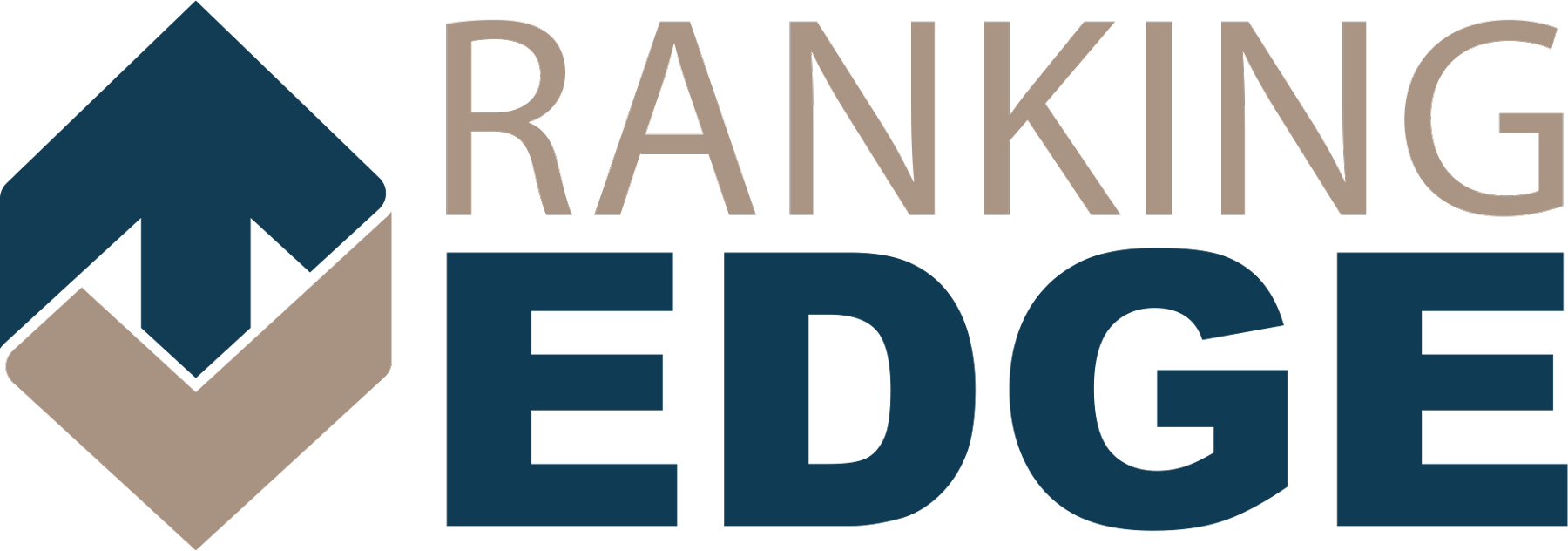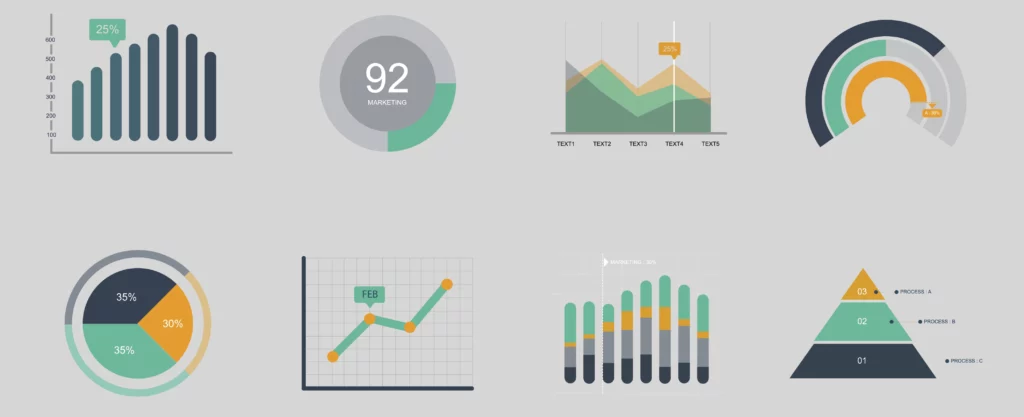Digital content marketing is a powerful tool for businesses, websites, and online stores to enhance their visibility and reach more customers. It involves creating engaging content that adds value to the reader’s digital experience.
Content can be in the form of blog posts, images, infographics, videos, ebooks, and other digital materials. Digital content marketing helps businesses get more exposure by appearing on search engine results pages (SERPs) or being shared across various social media platforms.
Why is Digital Content Marketing so Important?
The digital age has revolutionized the way businesses market their products and services. Digital content marketing is an essential tool in any modern marketing strategy and provides a number of advantages over traditional approaches.
It enables businesses to reach a wider audience, build customer relationships, and increase brand visibility online. It also helps to position companies as industry leaders by providing valuable and informative content that customers can use to make informed decisions.
What Companies Shine with their Content?
Digital content marketing is essential for businesses of all sizes and industries. Not only does it help drive brand awareness and website traffic, but it can also be incredibly effective in helping to reach new customers.
But what companies have the best digital content marketing strategies?
Amazon
One company that stands out above the rest is Amazon. The online retail giant has perfected its digital content marketing strategy over the years, leveraging its massive consumer base through targeted ad campaigns, promotional emails, and engaging videos.
Their efforts have helped them become one of the most successful eCommerce companies in the world.
Nike
Another example of an effective digital content marketer is Nike. They use a combination of cleverly designed ads featuring top athletes, influencer partnerships, and high-quality images to create a strong presence on social media platforms like Instagram and YouTube.
Thrive Causemetics
Thrive Causemetics is a relatively new company that has taken the digital content marketing world by storm. Founded in 2015, Thrive’s mission is to provide high-quality makeup and skincare products with a charitable twist.
As part of its commitment to giving back, the company donates one product for every product purchased, allowing customers to make an impact with their purchases.
On top of providing amazing products, Thrive also creates engaging and informative videos about the importance of self-care and how it impacts our lives in positive ways. These videos have resonated with viewers around the world due to their inspiring messages and creative visuals.
Not only do these videos get people talking about Thrive’s products, but they also increase awareness of its charitable cause.
What Types of Digital Content Marketing are There?
The internet provides us with a broad range of options for sharing our content. From blog posts to videos, there are many different types of digital content marketing available! Let’s take a look at some of the most common types and discuss how they can be used effectively to promote your business.
10 Types of Digital Content Marketing
1. Blog posts
These articles can cover a wide range of topics, from industry news and trends to product information and customer stories. Blog posts are a great way to provide valuable and informative content to your audience, as well as to establish your brand as an authority in your industry.
2. Infographics
Infographics are visual representations of data or information that use images, charts, and graphics to communicate complex concepts in an easy-to-understand way. They are a popular type of digital content because they are easy to share and can be highly effective at grabbing attention and conveying information quickly.
3. Videos
Videos are a powerful type of digital content that can be used to showcase products, tell stories, or provide educational content. They can be posted on a company’s website or social media platforms and can be used to engage with customers and promote products or services.
4. Podcasts
Podcasts are audio recordings that can be downloaded or streamed online and listened to on a computer or mobile device. They are a popular type of digital content because they allow people to consume information while they are on the go.
Podcasts can be used to discuss a wide range of topics, from industry news and trends to personal stories and advice.
5. Ebooks
Ebooks are digital books that can be downloaded and read on a computer or mobile device. They are a great way to provide in-depth information on a specific topic and can be used to educate customers or promote a company’s products or services.
6. White papers
White papers are detailed reports or guides that provide information on a specific topic or issue. They are typically longer than other types of digital content and are often used to provide in-depth analysis or to present research findings.
White papers can be used to establish a company as an authority in its industry and to educate customers about a particular topic.
7. Social media posts
Social media posts are updates or messages that are published on social media platforms such as Facebook, Twitter, and Instagram. They can be used to engage with customers, share news and updates, and promote products or services.
8. Webinars
Webinars are online seminars or presentations that can be attended remotely via a computer or mobile device. They are a popular type of digital content because they allow companies to reach a wide audience and provide information on a specific topic in an interactive and engaging way.
9. Email newsletters
Email newsletters are periodic emails that are sent to subscribers to provide them with updates, news, and information about a company or industry. They can be used to keep customers informed and engaged. Email newsletters can be a powerful tool for promoting products or services.
10. Online courses
Online courses are interactive educational programs that can be accessed online and completed at a student’s own pace. They can be used to teach a wide range of topics and skills. They are a popular type of digital content because they allow people to learn new things at their own convenience.
In the ever-evolving digital marketing landscape, content is king. Businesses of all sizes are leveraging digital content marketing to reach new customers and solidify relationships with existing ones.
With so many options available, it can be hard to decide which type of digital content marketing will provide the best return for your business.
To help you make this important decision, there are a few key factors to consider.
- Your audience: It’s important to understand the demographics, interests, and behaviors of your target audience. This will help you determine what types of content will be most relevant and appealing to them.
- Your goals: What do you hope to achieve with your digital content marketing? Do you want to drive traffic to your website, get more leads, or increase brand awareness? Identifying your goals will help you choose the types of content that are most likely to help you reach them.
- Your resources: Consider the resources you have available to create and distribute digital content. Do you have a team of writers, designers, and videographers at your disposal? Or will you need to outsource some of this work?
- Your budget: Your budget will also play a role in determining what types of digital content marketing are feasible for your business. Some types of content, such as video production and online courses, can be more resource-intensive and may require a larger budget.
Overall, the best approach is to experiment with different types of digital content marketing. Then see what works best for your business. This may involve creating a mix of different types of content and testing their effectiveness through analytics and customer feedback.
Problem-solving Digital Content Marketing
Solving problems for your audience can be a great way to create valuable and useful digital content for your marketing efforts.
When you provide solutions to common problems or challenges that your audience is facing, you can demonstrate your expertise and establish yourself as a reliable resource in your industry. This can help to build trust and credibility with your audience, which can ultimately lead to increased engagement and conversions.
One effective way to create problem-solving content is to identify the most frequently asked questions or common pain points within your industry and create content that addresses these issues. This could be in the form of:
- Blog posts
- Articles
- Infographics
- Videos
Another way to create problem-solving content is to use data and research to identify trends and patterns in your industry. Then create content that addresses these trends and provides valuable insights and solutions to your audience. This type of content can be especially useful for demonstrating your thought leadership and expertise in your field.
Overall, problem-solving content can be an effective way to engage and connect with your audience. It can help to position you as a trusted resource in your industry.
How-to Content and Becoming the Authority
One effective way to use digital content marketing is to create content that teaches people how to do something or answers their questions. This type of content can be especially helpful for businesses in the education, home improvement, or DIY industries.
It also works well for businesses that offer products or services that require some level of technical expertise.
To create effective digital content marketing that teaches people how to do something or answers their questions, you should:
- Identify the topics that your target audience is interested in learning about or the questions they are likely to have.
- Research these topics thoroughly to ensure that you are providing accurate and up-to-date information.
- Use clear, concise language and simple, step-by-step instructions to guide your audience through the learning process.
- Include multimedia elements, such as images, videos, and infographics, to help illustrate your points and make your content more engaging.
- Promote your content through social media, email marketing, and other channels to help reach a wider audience.
By creating valuable, informative content that meets the needs of your target audience, you can build trust and credibility with potential customers and establish yourself as an authority in your industry.
One of our most popular articles here on our blog is a how-to post!
Pros and Cons of Writing Yourself or Hiring Writers
There are pros and cons to both writing the content yourself and hiring someone to do it for you. Here are some things to consider.
If you decide to write the content yourself:
- You have firsthand knowledge of your business and can communicate your brand’s message and values effectively.
- You can save money on hiring a writer.
- You can make sure the content aligns with your business goals and marketing strategy.
If you decide to hire someone to write the content:
- A professional writer may have more experience and expertise in crafting effective marketing copy.
- A writer can bring a fresh perspective and ideas to your content.
- You can focus on other tasks while the writer handles the content creation.
Regardless of whether you write the content yourself or hire someone to do it, there are a few tips to keep in mind when creating digital content for marketing.
Tips for Creating Digital Content for Marketing
- Know your audience. Understanding who your target audience is and what they are interested in will help you create relevant and engaging content.
- Have a clear goal. Determine what you want your content to achieve, whether it’s to generate leads, drive traffic to your website, or increase brand awareness.
- Use data and analytics. Use data and analytics to understand what content is performing well and what isn’t. This can help you refine your content strategy and create more effective content.
- Be consistent. Consistency is key in content marketing. Make sure your content aligns with your brand’s values and messaging, and publish content consistently to build an engaged audience.
- Optimize for search. Use keywords and phrases that your target audience is searching for in your content. This will improve your search engine ranking and increase visibility.
Overall, the decision to write the content yourself or hire someone to do it will depend on your resources, expertise, and goals. Consider what will work best for your business and audience to create the most effective content marketing strategy.
How to Measure the Success of your Marketing Efforts
Measuring your success lets you know if your hard work has paid off. It helps you understand the effectiveness of your efforts. This allows you to optimize your content for better results. Tracking your progress over time lets you make any necessary adjustments to improve your results.
There are several ways to measure the results of digital content marketing:
Track website traffic
By tracking the number of visitors to your website, you can determine the effectiveness of your content marketing efforts in driving traffic to your site.
Monitor social media engagement
You can measure the engagement of your content on social media platforms by tracking likes, comments, and shares.
Monitor lead generation
If your content marketing strategy includes generating leads, you can track the number of leads generated through your content to measure its effectiveness.
Monitor conversions
By tracking the number of conversions that result from your content marketing efforts, you can measure its effectiveness in generating sales or other desired actions.
Monitor brand mentions
By tracking mentions of your brand on social media and other online platforms, you can measure the reach and impact of your content marketing efforts.
Use analytics tools
There are many analytics tools available that can help you track and measure the effectiveness of your digital content marketing efforts. Some examples include Google Analytics, social media analytics tools, and marketing automation software.
Overall, the key to measuring the results of digital content marketing is to set clear goals and objectives. Then track the key metrics that are relevant to those goals. This will allow you to assess the effectiveness of your content marketing efforts. Next is to make any necessary adjustments to improve your results.
In conclusion, digital content marketing is an extremely valuable tool for any business. It allows a business to reach and engage its target audience, increase brand awareness and loyalty, generate leads, improve SEO rankings, and ultimately drive more sales.
By utilizing the strategies outlined in this article, your business can dominate the digital space and take your success to the next level. Investing time and resources into creating high-quality content that resonates with your target audience will pay off in the long run.





